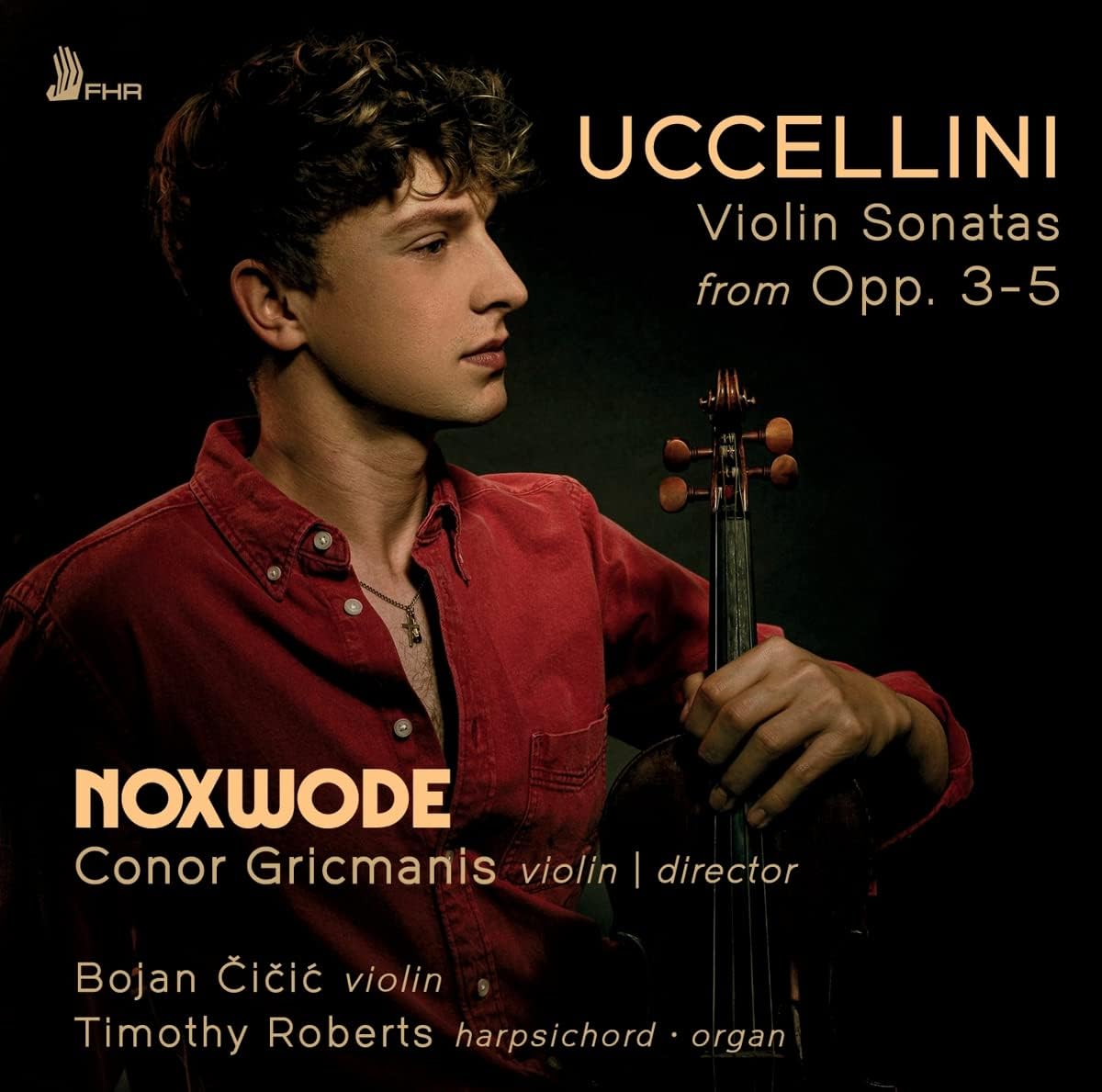Noxwode, Conor Gricmanis violin/director
65:30
First Hand Records FHR125
This series of violin sonatas is fascinating for its contrasts of mood, flamboyantly rendered by the young violinist Conor Gricmanis. Each of an opening series of four is given an epithet in its title, suggestive of the spectrum of moods it should embrace. The series is introduced by “La Musica”, which as you might imagine, embraces them all. Subtle flicks and swirls and touches of portamento bring to life these relatively well-aired pieces, giving them a pinch of folky excitement without ever being made too “appliqué”. Coupled with episodes of lyricism, this makes for an imaginative journey through the 17th-century Italian avant-garde. The continuo make-up is varied between pieces and between sections to give real flavour to each of the desired moods: from the 16ft bass support in the opening providing an anchored grandeur, to delicate sections of transparently plucked theorbo. The occasional use of a tremulant stop on the organ creates mystery and wide space around, for example, the duet with Bojan Čičić (Gricmanis’ teacher). “La Ebrea marinata” emerges from her morose “worse for wear” state into carefree dancing, lurching into triple and unexpected key changes, followed by a vaporous period of self-reflection, and a final heavy-footed exit. “La Luciminia contenta” is intimate and alluring, and undoubtedly content. “La Vittoria trionfante” is a singing contrast, but amongst such colourful company, perhaps Gricmanis could have allowed himself an articulation of the opening arpeggiated passages more suggestive of having succeeded in the field. As the disc progresses, we have “Shining Laura”, and even “The Lie”, which present further interpretive challenges! But these titles are intended to invite the performer to open up to new possibilities in performance, and this invitation is accepted in these performances. It is gratifying to hear a new player bringing freshness to a repertoire with which we might have felt familiar.
Stephen Cassidy
